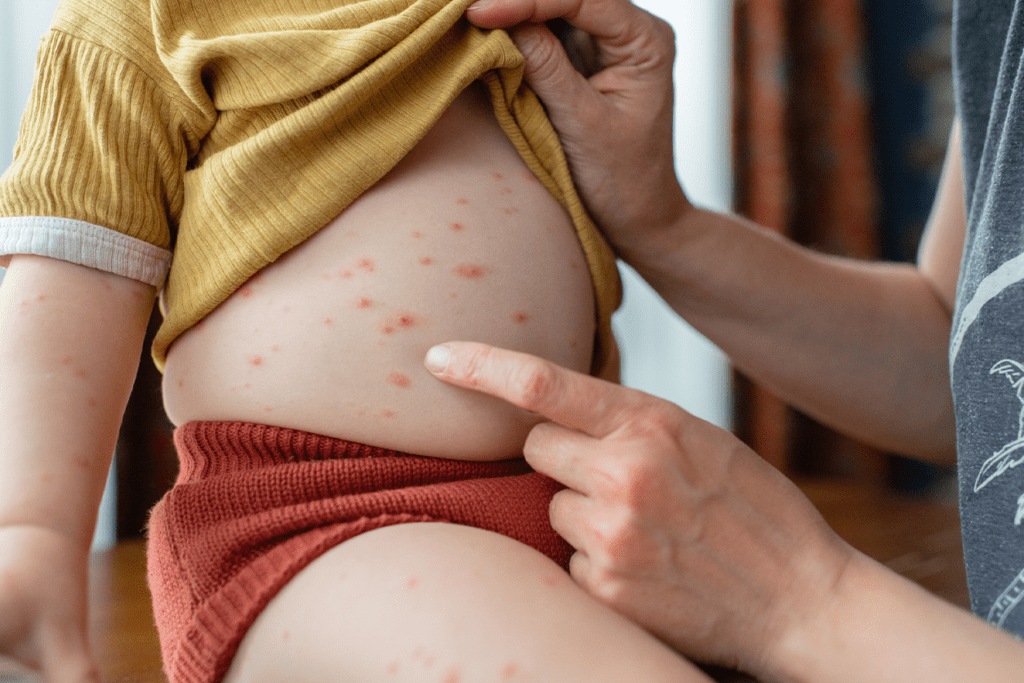
The vaccine for chickenpox, once a childhood rite of passage, reduced cases in the United States by 97 percent. It’s recommended for adults, too.
Chickenpox, or varicella, is an infection that sounds familiar to many older Americans. Chickenpox is caused by a virus that results in fever and a rash that progresses through various stages before it begins to crust. While most people will recover from the infection, some will go on to develop complications, including bacterial infections of the skin and pneumonia.
Some people are at higher risk for complications, including those with immunosuppressive conditions, HIV infections, and pregnancy. Getting chickenpox results in lifelong immunity; however, the chickenpox virus can remain dormant in your body for years after the initial infection. It can reactivate during periods of stress and illness, leading to a painful rash in adults known as herpes zoster or shingles.
Getting chickenpox used to be viewed as a rite of passage for many school-aged children with an estimated 4 million infections a year before the early 1990s. It also led to between 10,500 to 13,500 hospital admissions and 100-150 deaths a year. All this changed dramatically with the introduction of the chickenpox vaccine, which reduced cases of chickenpox by a very impressive 97 percent. Annual cases in the United States are down to around 150,000, with only 1,400 hospitalizations and 30 deaths per year.
Two doses for children or adults
The chickenpox vaccine is used in two doses to provide lifelong immunity without risking potential complications from infection. When delivered as a part of childhood vaccination, the first dose is given between the ages of 12 and 15 months. The second dose follows between the ages of 4 to 6 years. Adults who are not immune can be offered the two doses about eight weeks apart.
So why should you get the vaccine as an adult? The most obvious reason is to avoid having to deal with getting an infection. While the infection itself resolves in most cases, the rash is itchy and uncomfortable – and significantly restricts your ability to interact with others. As mentioned earlier, chickenpox can cause complications leading to bacterial infections that need hospital stays and in rare cases can cause death.
Getting the vaccine also lowers your risk of getting shingles later in life, although it’s worth noting there is a separate vaccine for that as well. And finally, if you are someone at higher risk of getting sicker (or around someone who is at higher risk), then getting the vaccine greatly reduces that risk. It similarly reduces risk for those at higher risk of getting infected, such as those working in healthcare.
Flag and resolve immunization gaps
Primary.Health’s vaccine registration system makes it easy to spot and address immunization gaps for chickenpox and other required vaccines. Use our software to flag and close immunization gaps in schools, communities, and any large group — even state-wide. Our platform connects seamlessly to your systems and public health databases for real-time analytics and automated reporting. No more worries about out-of-date immunization records. Just upload your roster and go!
And should you identify a specific vaccine need, we can help you organize a vaccination clinic to bring everyone up to date. Give us a call at 1-855-970-3223 or email sales@primary.health to get started.
Disclaimer: This blog content and linked materials are not intended as individual medical advice, diagnosis or treatment, and should not be considered as such. Any readers with medical concerns should contact a licensed healthcare provider. This blog is provided for informational purposes only.
